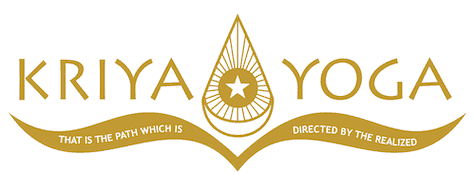Interview with Rebecca Lunn
 July 2021
July 2021
Welcome Rebecca, good to have this opportunity to speak with you and it’s great that you agreed to share some stories with us. My first question is what prompted you to become a Kriyavan?
In a way, I feel that Kriya prompted me, rather than the other way round. I’d long had a strong drive towards personal development and self-reflection, but I was mainly exploring this through psychotherapy and creative expression. I’d also been practising Hatha Yoga for some years, which involved breathwork, but the focus was predominantly on the physical body. I didn’t have much of a sense of spiritual quest at this time, in fact references to God and faith were something of a barrier for me, having moved away from a religious upbringing. However my partner at the time was interested in meditation and had become deeply engaged in Kriya, so I was living with it without having consciously sought it out.
So could you tell us about your initiation?
I don’t actually have very strong memories of my initiation. I had come to feel it was time for me to give it a go, after observing the benefits my partner was experiencing, but I had a degree of detachment as I did so. Perhaps that’s why I don’t remember very clearly.
Do you think practising Kriya Yoga has benefitted you? And if so, in which ways?
It was a few years later, when going through some significant life changes, that I really came to feel the benefit of Kriya on all levels. At a time of intense stress and anxiety, it gave structure and motivation, incrementally enabling me to synthesize and ultimately let go of some difficult thoughts and feelings.
I found the physical nature of the technique (focussing on the breath and the power of mahamudra) hugely helpful. And as I engaged more deeply with the practice, I also began to allow myself to connect more with other Kriyavans through retreats and my local Kriya group.
Through the power of group meditations I found myself opening more to the transpersonal, allowing further transformational shifts to take their course. It’s hard to put these into words, but at the time I had the sense of the practice moving from black and white into technicolour (maybe I watched the Wizard of Oz a few too many times as a child!).
Could you say something about your meditation practice?
I think I was fortunate to be living with someone with a very disciplined meditation routine, which was hugely helpful after I got initiated. Since then, I’ve always kept some sort of daily practice going, however brief. My preference is to complete second Kriya morning and evening although, in reality, it varies quite a bit how much I manage that.
Have you visited any of our ashrams or been on Kriya Yoga retreats?
Until recent restrictions made it impossible, I’ve quite frequently attended retreats at Sterksel and Tattendorf. I was also fortunate to spend 5 weeks at Balighai ashram, during the Brahmacharya training led by Prajnanananda in 2017. The Guru Mandir at Balighai (resting place for the body of Hariharananda) and the wooded grounds of Sterksel both offer beautiful places to meditate.
As well as Kriya retreats, I’ve also been fortunate to join various walking events with fellow Kriyavans and on occasion, Prajnanananda. The first of these was the Prachi walk in Odisha in 2017, walking from the source of the Prachi river to its estuary in order to help heal the polluted waters and raise awareness of its sacredness – a beautiful and moving (in all senses!) experience. In 2018, I joined the Balashram fundraising trek in Tanzania, another amazing opportunity to walk and meditate in the landscape.
Have you been involved in any other Kriya activities? And if so, are there any occasions which spring to mind which were significant in some way, perhaps amusing or perhaps creating an inner change or major stepping stone – anything?
On my first retreat in Sterksel, I came to appreciate the powerful impact of simply being around Prajnanananda. So much so, that I got very keen and booked myself onto another retreat at Hubingen, near Frankfurt, a couple of months later, as he was due to be there.
Towards the end of the first day at Hubingen, we got the message that his planned attendance had been cancelled. There was a strong mood of disappointment and some people were in tears.
This definitely wasn’t what I wanted, but it turned out to be a great gift in terms of my practice. Thanks to the power of meditating with others, I found it was surprisingly easy to let go of my expectations and feelings of disappointment. Since then, I’ve really felt I understand Prajnanananda‘s frequent teaching point that the key is to keep your own meditation practice going, rather than becoming dependent on direct contact with the teacher (valuable as that may be).
What advice if any would you give new initiates?
Really to restate that latter point – a strong encouragement to keep your own meditation practice going (even if you’re not always sure why, as I wasn’t at the beginning). The benefits can be subtle and incremental, rather than immediate and dramatic. Also, that there’s no one right way to do this – that’s the learning that I’ve taken from my tentative beginnings. And finally, just to reiterate the benefit of meditating with others and keeping good company, in whatever way is feasible with how and where you live.
Thank you for sharing, Rebecca. I can see that others could benefit from your experiences and how you’ve interpreted them and put them into practice.


